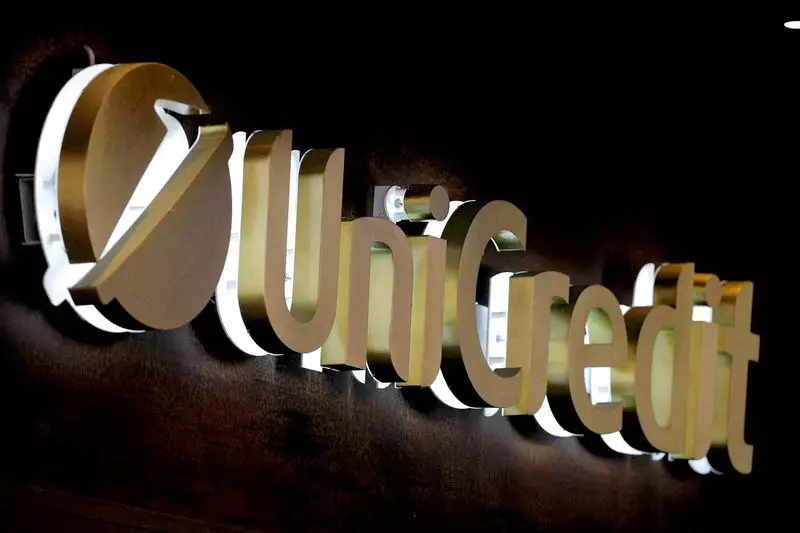UniCredit, one of Italy’s major financial institutions, finds itself at a critical juncture as it awaits a significant court decision regarding its operations in Russia. The Italian bank has been under increasing scrutiny from the European Central Bank (ECB), which issued directives for UniCredit to scale down its Russian activities. Nearly four months after appealing the ECB’s order, the bank’s predicament highlights the tension between regulatory compliance and international business operations. As the wait for a judicial ruling prolongs, the bank faces mounting pressure to adhere to requests that are already overdue.
The ECB’s directives, communicated to UniCredit in late April, encompassed stringent measures including a prohibition on new deposits and strict guidelines on handling payments—in essence, prompting the bank to reassess its Russian footprint. This regulatory push stems from broader concerns regarding financial stability and potential risks associated with business dealings in Russia, particularly in the wake of geopolitical tensions. UniCredit’s Chief Executive Officer, Andrea Orcel, has publicly voiced concerns that complying with the ECB’s orders might conflict with Russian law, thus placing the bank in a precarious position.
Court Proceedings and Regulatory Implications
In June, UniCredit took the step of appealing to the European Union General Court, seeking to annul the ECB’s stringent demands. The appeal included a request for interim relief, as the bank argued that the enforcement of these measures could potentially lead to legal conflicts with Russian regulations. Intriguingly, while the court deliberates, UniCredit maintains a commitment to reducing its presence in the Russian market, reaffirming its goal to scale down operations by 2025. This statement of intent signals a dual narrative that converges on regulatory compliance while navigating complex market realities.
Despite UniCredit’s assertions of compliance efforts, details surrounding its specific actions in response to the ECB’s requests remain shrouded in ambiguity. The bank aims to significantly reduce cross-border payments to below €8.5 billion and local deposits to below €2 billion by 2025. Yet, the enforcement of a payment restriction scheme starting September 1 raises further questions about the nature of these compliance measures. It remains unclear whether UniCredit has effectively adhered to the ECB’s directives, particularly in distinguishing clients who fall under the ECB’s defined “whitelist.”
Broader Context and Strategic Ambitions
The legal entanglement with the ECB is not the only hurdle UniCredit faces. At the same time that it is engaging in this court battle, the bank is seeking ECB approval to increase its stake in Germany’s Commerzbank. The regulatory assessment of such acquisitions involves not just the financial soundness of the buyer but also reputation considerations, particularly in light of ongoing legal disputes. This situation underscores the challenges UniCredit must navigate as it attempts to consolidate its presence within Europe while simultaneously addressing the fallout from its Russian business.
The backdrop for UniCredit’s struggles can be traced to its historical connections with Russia, which date back to the establishment of the International Moscow Bank—the first Russian bank to seek foreign investment. Following a series of ownership changes, it evolved into AO UniCredit Bank and was designated a systemically important financial institution by the Bank of Russia in 2015. These historical ties become increasingly complex amid the current geopolitical landscape, especially after Russia’s invasion of Ukraine in 2022, which saw limited Western financial institutions maintain significant operations in the country.
As UniCredit waits for the court’s decision, the broader implications of this legal battle extend not only to its operations in Russia but also to its strategic ambitions within Europe. Regulatory frameworks continue to evolve, leading banks to grapple with compliance challenges amidst shifting geopolitical realities. In navigating these tumultuous waters, UniCredit must carefully balance its operational commitments in Russia against the backdrop of European regulatory expectations. Ultimately, the outcome of this court case and UniCredit’s response might set a precedent for how banks deal with similar situations in an era defined by increased scrutiny and accountability in global finance.

